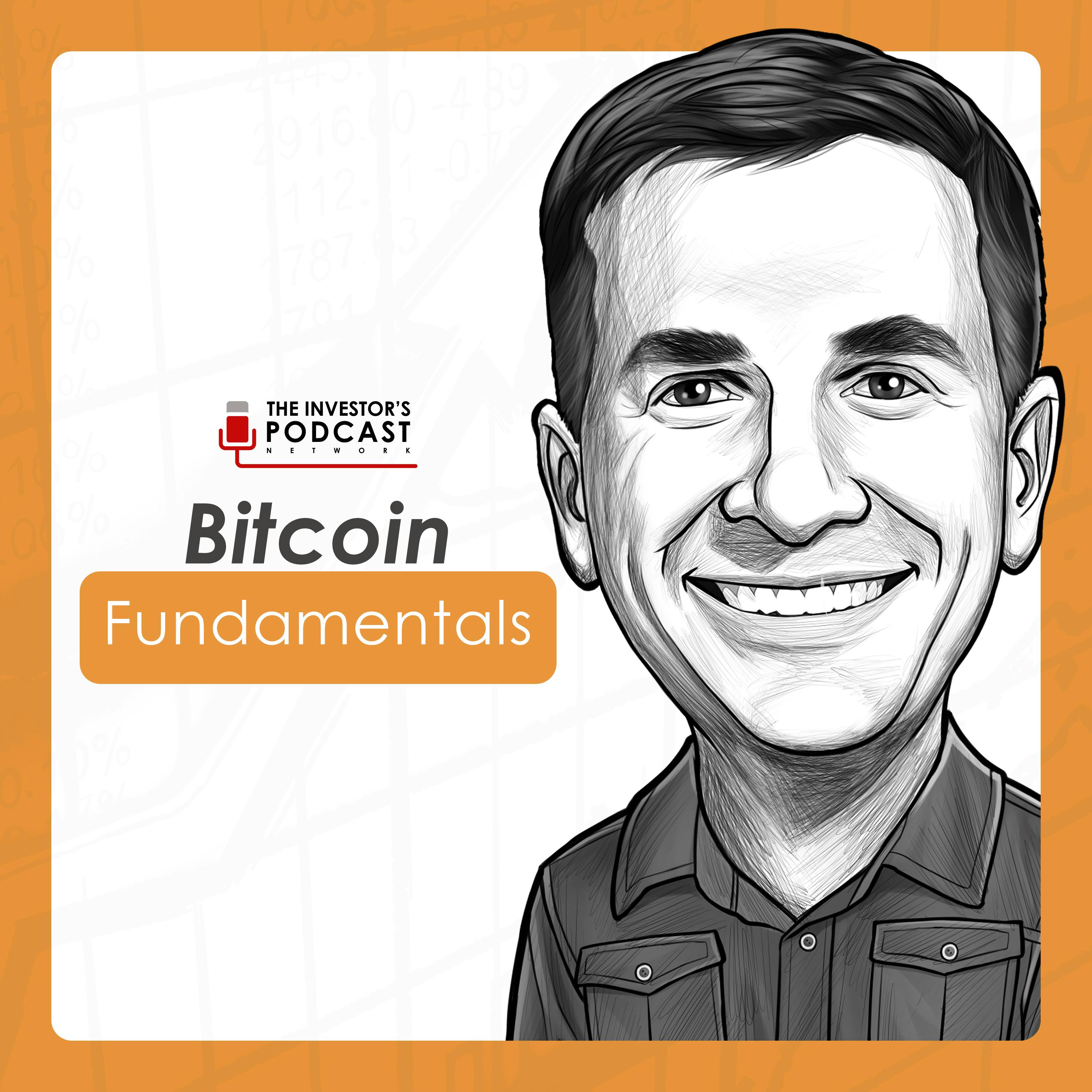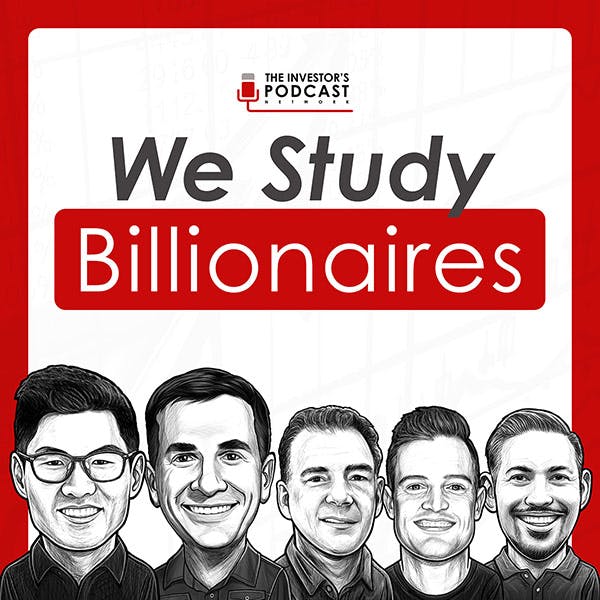
October 9, 2024 • 1hr 3min
BTC203: Bitcoin Mining Decentralization with the Datum Protocol at Ocean Mining w/ Bitcoin Mechanic and Jason Hughes (Bitcoin Podcast)
We Study Billionaires - The Investor’s Podcast Network

Key Takeaways
- Block templates are crucial for decentralizing Bitcoin mining, as they determine what transactions get included in blocks. Currently, only 4-5 entities control most block templates, which is a centralization risk.
- Ocean mining is taking a new approach to decentralize block template creation by allowing individual miners to create their own templates rather than relying on centralized mining pools.
- The new Datum protocol, developed by Jason Hughes in just 8 months, enables fully decentralized block template creation for miners using Ocean.
- Ocean's reward system ("Tides") ensures miners are fairly compensated based on the value of blocks they attempt to mine, without subsidizing low-fee blocks.
- Full Pay Per Share (FPPS) payout systems used by most pools take a large cut from miners to guarantee consistent payouts. Ocean's direct split from blockchain rewards is more profitable for miners who can handle variance.
- SOC2 compliance requirements are a major hurdle for Ocean in onboarding large institutional miners, as the permissionless and non-custodial nature of Ocean conflicts with some compliance standards.
- The Datum client allows miners to easily run their own node and create block templates locally while still participating in Ocean's pooled mining for consistent rewards.
Introduction
In this episode, Preston Pysh interviews Jason Hughes and Bitcoin Mechanic about Ocean mining's innovative approach to decentralizing Bitcoin mining through their new Datum protocol. They discuss the importance of decentralized block template creation, the technical details of how Datum works, and the challenges Ocean faces in growing adoption among large-scale miners.
Jason Hughes is the developer of the Datum protocol and previously ran one of the largest early Bitcoin mining pools. Bitcoin Mechanic is involved with Ocean mining and is an advocate for mining decentralization.
Topics Discussed
The Importance of Decentralized Block Templates (2:48)
Bitcoin Mechanic explains why decentralized block template creation is crucial for Bitcoin:
- Currently only 4-5 entities control most block templates, which is a centralization risk
- Miners should be able to decide what transactions go into blocks, not just centralized pools
- Ocean aims to decentralize this process by allowing individual miners to create templates
As Bitcoin Mechanic states: "We need to tackle those [centralized aspects] when they happen, because people like centralization because it's really efficient and it's really cheap, right? There's always an inherent cost to decentralization because you have to do a lot more work yourself."
Stratum V1 and V2 Protocols (7:07)
Jason Hughes explains the Stratum mining protocols:
- Stratum V1: Centralized protocol that allows pools to efficiently provide work to miners
- Stratum V2: Aimed to improve efficiency and add some decentralized capabilities, but still fundamentally centralized
- Neither protocol fully enables decentralized template creation by default
The Datum Protocol (9:12)
Jason describes the new Datum protocol he developed for Ocean:
- Fully decentralized - miners must generate all work and templates locally
- Compatible with existing Stratum V1 mining hardware
- Developed in only about 8 months
- Allows miners to create their own templates while still benefiting from pooled mining
Tesla Hacking Story (14:52)
Jason shares an anecdote about how he discovered a critical vulnerability in Tesla vehicles:
- Found a bug chain allowing control of any Tesla remotely
- Demonstrated by moving a Tesla belonging to Tesla's head of security research
- Led to a call with Elon Musk to discuss the vulnerability
Ocean's Reward System (21:49)
The hosts discuss how Ocean fairly rewards miners creating different types of block templates:
- Uses a system called "Tides" that looks at the last 8 blocks of work
- Miners are rewarded based on the value of blocks they attempt to mine
- Prevents subsidizing miners who include very low-fee transactions
- Allows miners to optimize for their own priorities (e.g. including their own transactions) without impacting others
Datum Protocol Implementation (22:31)
Bitcoin Mechanic demonstrates running the Datum client:
- Runs on top of a standard Bitcoin node
- Very lightweight - can run on a Raspberry Pi
- Allows miners to create local block templates
- Still submits shares to Ocean pool for consistent rewards
- Miners can include custom coinbase messages in blocks they find
As Bitcoin Mechanic explains: "This is the dream. This is how pooled mining should actually work. And it does. I'm actually doing it now."
Challenges with Large Miners (41:36)
The hosts discuss obstacles to adoption by large institutional miners:
- SOC2 compliance is a major hurdle
- Ocean's permissionless, non-custodial model conflicts with some compliance requirements
- Variance in payouts is difficult for miners with frequent power bills
- Getting the first exahash of hashrate is the hardest, but it gets easier as the pool grows
Jason notes: "I find it quite ironic that it's something that people want of us when we have no customer data."
Conclusion
Ocean's Datum protocol represents a major step forward in decentralizing Bitcoin mining by enabling individual miners to create their own block templates while still benefiting from pooled mining. This preserves Bitcoin's censorship-resistance and decentralization at the critical level of block creation. While challenges remain in gaining adoption, particularly among large institutional miners, Ocean has created a working solution that is already being used by some miners.
The hosts emphasize that this type of decentralization is crucial for Bitcoin's long-term success. As Bitcoin Mechanic states: "Bitcoin needs some decentralization and it needs it yesterday, and we need practical solutions for that. And this is what that is."
Interested miners are encouraged to learn more by visiting Ocean's website, joining their Discord, or reaching out to the team on social media platforms. As adoption grows, it will become increasingly viable for miners of all sizes to participate in this more decentralized approach to Bitcoin mining.









